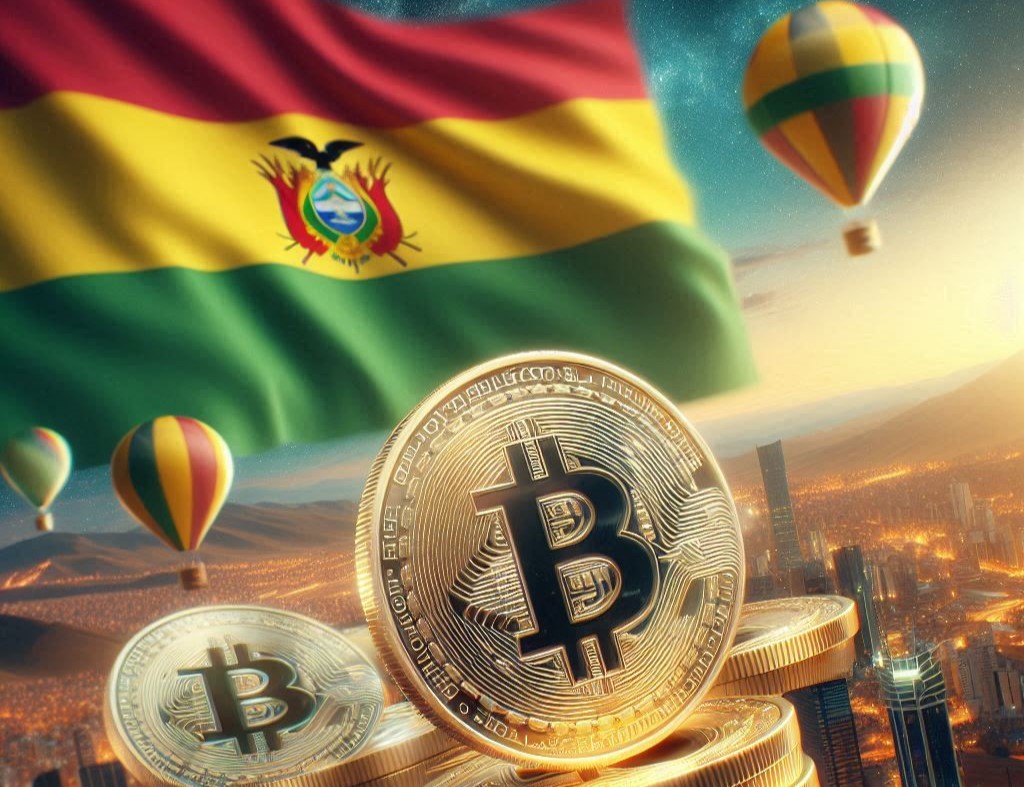Bolivia lifted the bitcoin ban as the Latin American country is now looking to endorse and advocate awareness about cryptocurrencies.
Bolivia, a Latin American country, has lifted its decade-long prohibition on Bitcoin (BTC), enabling banks to process crypto-related transactions as part of its commitment to modernizing its payment systems.
The Banco Central de Bolivia, the central bank of Bolivia, has recently announced that it has reversed its decision regarding digital asset transactions. As a result, banks are now permitted to investigate the industry.
Unlocking Economic Innovations
The central bank is confident that lifting the crypto prohibition will stimulate innovation, potentially revitalizing Bolivia’s economically challenged economy.
Furthermore, the Banco Central de Bolivia declared its intention to harmonize Bolivia’s cryptocurrency regulations with those of other Latin American countries. Bolivia’s population of 12.22 million was prohibited from engaging in the digital space in 2014 due to concerns regarding the absence of a clear regulatory framework and the potential for illegal activities. Consequently, the prohibition on digital assets was implemented.
In December 2020, six years later, the government prohibited financial entities from processing cryptocurrency transactions. The prohibition was implemented by the nation’s Board Resolution N°144/2020. After a decade of neglect, Bolivia has finally embraced cryptocurrency due to the country’s recent legislation. Nevertheless, the new regulation permits banks to execute crypto transactions through state-approved channels.
The central bank warned companies that they cannot take digital assets as payment for goods and services, as the asset class has not been approved for such transactions. Bolivia’s government has clarified that the law does not recognize cryptocurrencies, such as Bitcoin, as lawful tender.
A New Legislative Framework
Three governmental bodies in the nation collaborated to implement the crypto law. According to the announcement, the new legislation was developed in collaboration with the central bank, the Financial System Supervisory Authority, and the country’s Financial Investigations Unit.
The law, implemented on June 26, aligns Bolivia’s crypto regulations with the regional standards that the Latin American Financial Action Task Force has endorsed.
Bolivia intends to implement an educational initiative to enhance crypto awareness in the region and eliminate the prohibition. This initiative will be part of the nation’s Economic and Financial Education Plan. This program will provide Bolivians with an understanding of the potential risks associated with cryptocurrencies and the corresponding strategies for managing them responsibly.
Cryptocurrency and Latin American Countries
In the interim, Bolivia has become the most recent nation in Latin America to adopt cryptocurrency to revitalize its fragile economy, following its recent acceptance of Bitcoin.
El Salvador is a prime example of the region’s willingness to embrace financial innovation. The nation was the first to formally adopt crypto and acknowledge Bitcoin’s potential as a payment method.
El Salvador declared Bitcoin a lawful tender in 2022, enabling it to be used with its fiat currency for daily transactions.
Mexico, Argentina, and Brazil are also crypto-friendly countries in the region. Even though cryptocurrencies have yet to be officially recognized as a legitimate currency in Brazil, they are still accepted for value transfers and payments.
However, Argentina recently elected a pro-crypto president, Javier Milei, who was sworn into office last year. Nevertheless, the impact of his administration on the crypto economy remains to be determined.
